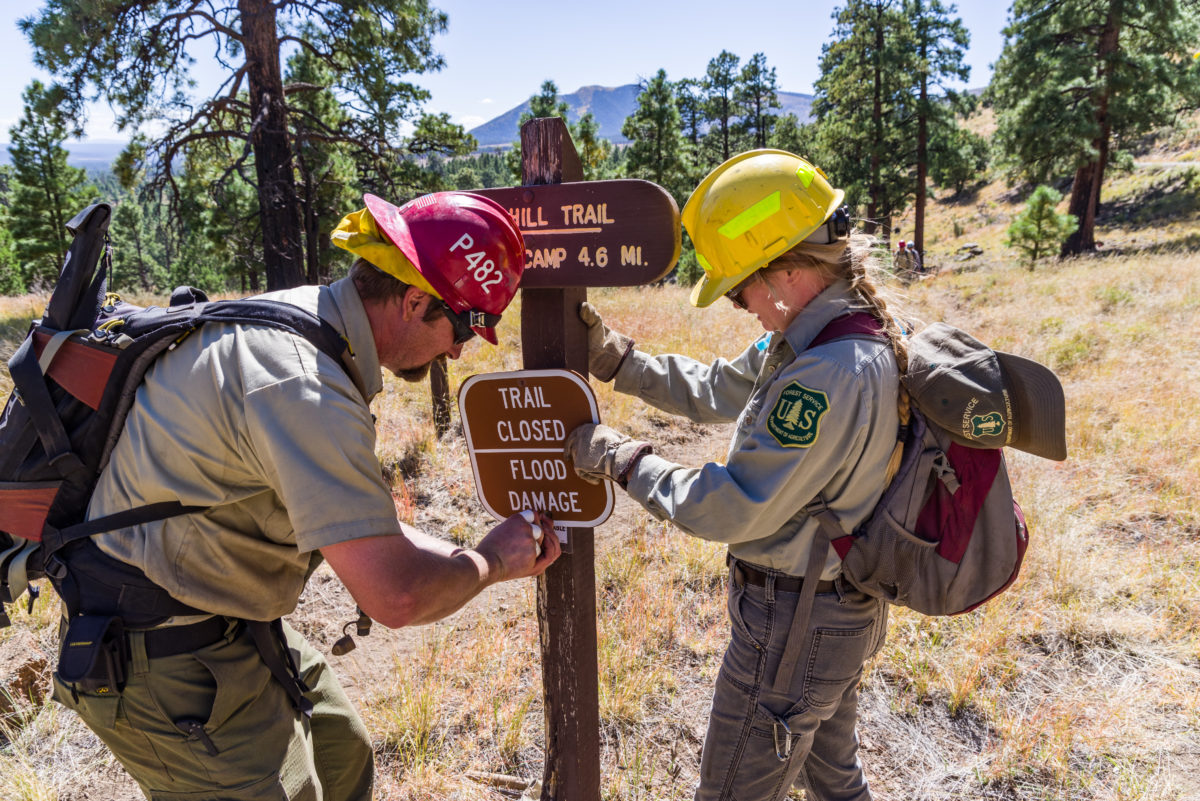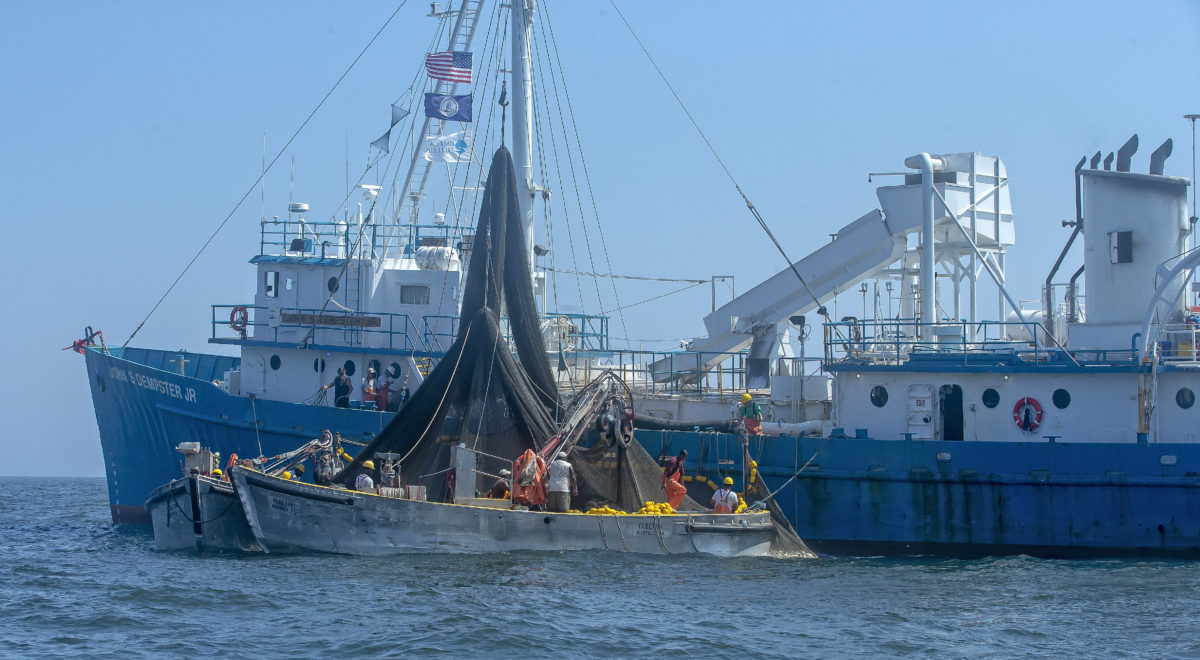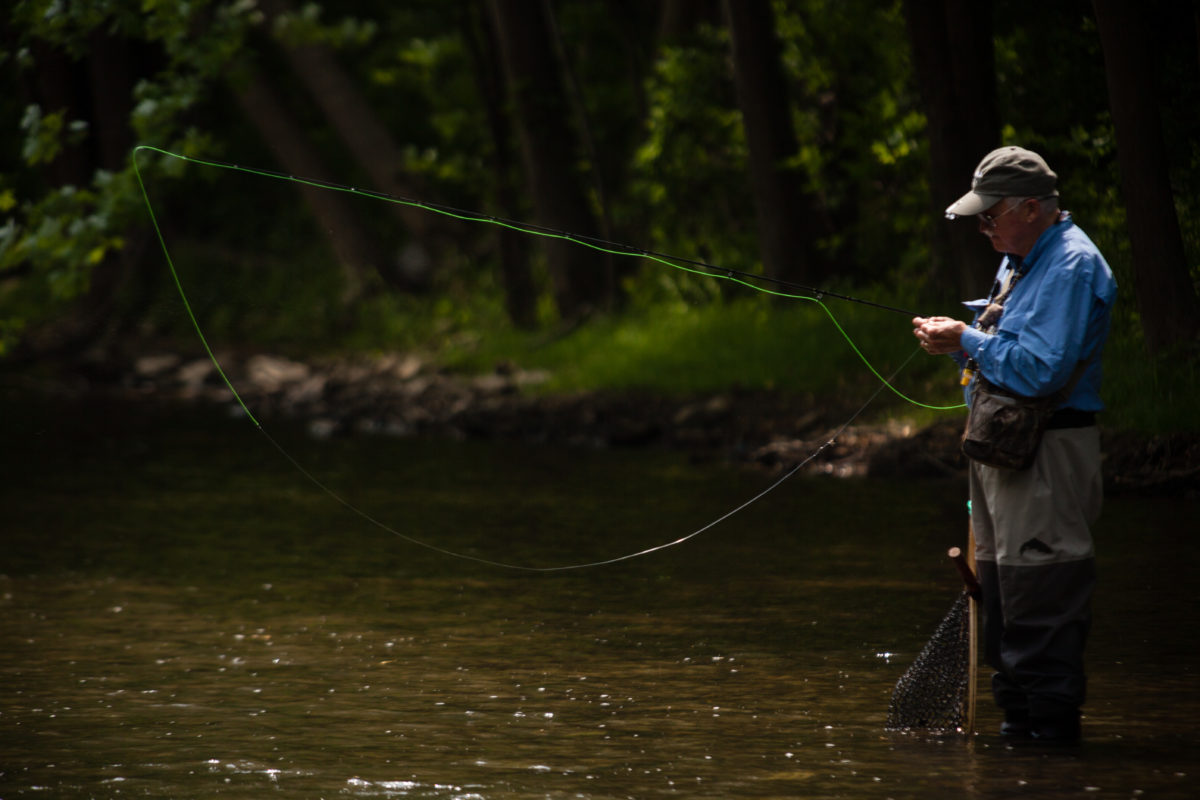Sportsmen and women on both sides of the aisle overwhelmingly want state decision-makers to ensure robust funding for conservation programs that improve water quality and fish habitat
The majority of Pennsylvania’s hunters and anglers want decision-makers in the state to invest in clean water and fish habitat, even if it means sportsmen and women have to open their own wallets to do so, according to polling data revealed today by the Theodore Roosevelt Conservation Partnership and Public Opinion Strategies.
Once they were provided with basic information on how it would help conservation, nearly three-quarters of the hunters and anglers polled (74 percent) said they would agree to increase the state’s fishing license fee, which hasn’t been adjusted in more than a decade, despite the rising costs facing the Pennsylvania Fish and Boat Commission. Sixty percent of respondents supported the fee increase without any additional information about how the money would be spent.
Even as the primary agency tasked with providing safe access to 86,000 miles of rivers and streams, the PFBC has been forced to scale back conservation efforts and operate with fewer wildlife conservation officers in recent years.
“This study shows that, regardless of political affiliation, sportsmen and women in the Keystone State are spurred to action by clean water issues that affect our hunting and fishing opportunities,” says Derek Eberly, Pennsylvania field representative for the Theodore Roosevelt Conservation Partnership. “We’ve always been willing to pay our fair share for conservation, but it’s time to pay a little more.”
Beyond the price of fishing licenses, 77 percent of poll respondents who hunt and fish were also willing to pay more in taxes to restore and/or maintain water quality and quantity in Pennsylvania, where healthy in-stream flows support strong fish populations. And 92 percent of the sportsmen and women polled said state lawmakers should strengthen or maintain the clean water laws and standards currently in place.
Other key results:
- 81% of Pennsylvania hunters and anglers across the political spectrum have a more favorable opinion of elected officials with pro-conservation views.
- 90% of voters who hunt and fish say habitat and water issues are important to them as they decide whether or not to support an elected official, with almost no distinction between Republicans, Democrats, and Independents.
- 37% went even further to say that habitat and water issues are of primary importance as they decide whether or not to support an elected official.
- Four in five say they support fully funding the Growing Greener program, which provides grants to restore watersheds, clean up abandoned mines, and plug abandoned oil and gas wells.
To learn more about poll methodology and review the full results, click here.








Well, good for the Pennsylvanians. We Californians dish out serious change for basic license and tags, lottery type draws for quality tags (where your odds are just as ‘good’ as a standard state lottery), and are usually relegated to hunting backside to bellybutton with others when you don’t get drawn. The other alternative to a draw is to shell out more serious change to get on private land with a guide. In our state, it pays to be well-heeled or connected.
Californians pay some of the highest fishing license fees and each year DFG does less and less stocking and the fees go up. We pay taxes and fees for our hunting and the state does not to support increasing guzzler and habitat improvement. The state only wants more money from its sportsmen. I say NO to increasing fees.
We raised our license fees, paid a Columbia River endorsement fee, went to barb less hooks, to get the indiscriminate gill nets out of the Columbia river, the state of Washington and Oregon had an agreement to implement a plan and after several years and the collection of thousands of dollars, when it was time to pull the nets the state of Oregon backed out on the plan, thanks to the Governor of Oregon appointing a gill net lobbyist to the state fisheries board. They still are collecting the money after backing out on the agreement. I would trust any state or politician with my money in the future. We got screwed and are continuing to get screwed. No thank you.
I am NOT in favor of raising anything for conservation as long as hikers and mountain bikers continue to get a free pass. I am tired of the arrogance of the spandex crowd, who want everything for free ! Please detail all of the excise taxes and their respective exact amounts in percentages of purchases. Excise tax on boats, boating supplies, boating fuels. Excise taxe on fishing gear and related supplies. Excise tax on guns, ammo and related gear. Hunting licenses, fishing licenses and habitat stamps. Ridiculously exorbitant application and preference point fees. Expensive ($450) registration fees for my camper. $100 for ATV registration. Am I forgetting anything ? Where is the 10% excise tax on mountain bikes and hiking boots ? Why do they continue to refuse to purchase habitat stamps like originally agreed to ? Where is the annual registration fees for bikes ? Where is the annual $20 BIKE/HIKE PASS ? $20/ Yr. will generate $700 MILLION EVERY YEAR ! NO FREE LUNCH ! Pay your fair share. I refuse to pay your way anymore.
All users, including commercial, should be required to share the expense. Especially those garnering income from the natural resources on public lands.
I vote no on raising rising or hunting licenses fees! Funds will only go to pay for another bureaucracy or to the enforcement divisions of parks and wildlife. Just try to find out what happened to Pittman Robinson funds. Enforcement of city and farm pollution with hefty fines will work for our streams. We don’t have many clear water lakes or rivers here
if we increase fees there needs to be an accountability that the fees go to the improvements and not to the general expenses.
Washington state wants to increase hunt and fish fees. Already to high for a family to participate. Say they want more young people to get involved, but most families cant afford to. Time for all outdoor users to pay their fair share. Hikers, bikers, bird lovers ect. Money spent to get gill nets out of the Columbia river and Oregons govener backs out in favor of commercial fishermen. NO MORE INCREASES , until everyone pays for the use. Moey should not go to states general fund for this purpose….
I live in pa. and I DO NOT support raising any lic fees for any perceived investments and I do not believe any alleged surveys as they have fabricated these in the past. Hunters and fishermen numbers have been dropping because of the high prices. The game and fish commission have been requested to provide a financial audit of ALL of their income including fracking wells for oil and gas and timber sales and they refuse to do so. what we know they are doing is buying many $250,000 air boats & $80,000 suvs to pull them around so they can harass boaters, duck hunters and fishermen.
If the game and fish commission would like ick u a little more credibility they need to do a 3rd party audit and combine the game and fish into ONE efficient organization AND then issue ONE single license for a nominal cost for ALL hunting and fishing instead of the dozens and dozens various lic. This will result with increased participation and increase budget.
Enjoy the outdoors everyone but don’t be snookered into thinking empting your pocket will provide any additional services.